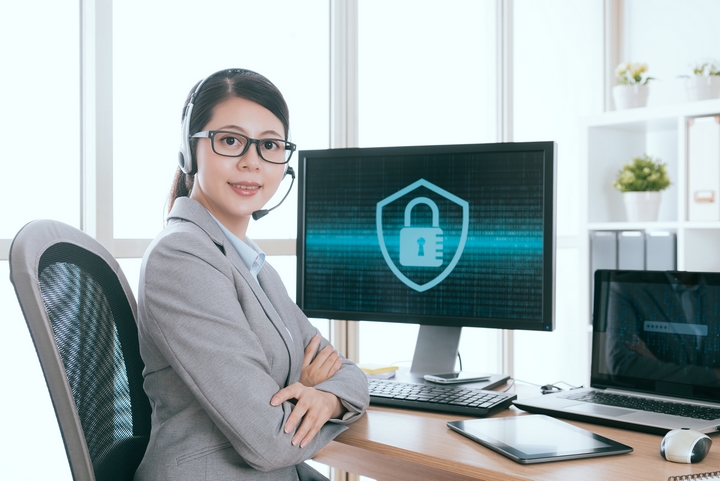
How to Prevent Hacking: 7 Ways to Protect Computer Security
In our current modernized society, we are constantly integrating technology into our daily lives. This can come in the simple form of creating passwords for your various accounts, to moving your bank accounts to a digital platform. All of these actions, unfortunately, become prime targets for hackers. It is becoming more and more difficult to protect your computer security and prevent hacking.
Cyberattacks onto our personal lives are becoming more common as our technology advances. In order to prevent hacking, the key here is becoming more aware of how hackers operate. With the guidance of professional IT support providers, you must make an effort to increase the general security on your devices and digital platforms.
In order to prevent hacking, Here are the seven best ways to prevent hacking and protect computer security:
1. Make your computer passwords secure

This may be the most basic of ways to protect computer security, but it is generally the most important technique on how to prevent hacking. Every time you create a new digital account, you are asked to create a password. A simple “abc123” will not suffice when trying to ward off hackers; you’ll have to create something stronger.
Make sure your passwords have a combination of numbers, letters and symbols. You should also throw in some special characters as well, in order to further strengthen the password’s effectiveness. Remember, a password should never be used twice; this limits a hacker’s ability to access your information if all passwords are different.
2. Use a password manager for computers

Speaking of passwords, it may inevitably become challenging to remember every single one of your passwords. When this happens, it may be time to use a password manager. Although you will still have to keep track of each individual password, a manager is a tool that can prevent hacking and make the computer security process much more robust.
Password managers such as “1Password” are valued for their ability to implement security into your respective accounts, as well as for their encryption. Most browsers also come equipped with a password manager as well, but be sure to check if encryption is available on them. Otherwise, it may be best to use a third-party manager.
3. Change your computer security passwords

This doesn’t necessarily mean that you should create one password today, and change it the following day. However, you should remain abreast of how long your password has lasted since you created it. If it has gone beyond months, you should alter it in order to prevent hacking.
Don’t just simply change a letter or a number; make sure the change is substantive. This means revamping the entire phrase, so that hackers are prevented from guessing what the original wording was. This goes for all your various accounts and devices, so ensure that they are changed at least every three to four months.
4. Two-factor authentication against hacking

The two-factor authentication is a great method of how to prevent hacking. This security process doubles down on protecting your accounts by using an alternative service or device on hand.
Two-factor authentication first makes you input a code that is sent by another service in order to access your account. This is usually done after you initially enter your username and password.
Many popular apps and social media networks feature two-factor authentication, which can be enabled at your discretion. The more you strengthen your security, the more you make it difficult for hackers to gain access into your accounts. Always use what’s available in your toolkit!
5. Protect your computer wi-fi from hacking

When using a personalized Wi-Fi connection, be sure to encrypt it with proper computer security. Having an open network can make it too easy for hackers to both steal your connection and conduct terrible activities.
It is also worth upgrading your router every few years to prevent hacking. Newer routers come with built-in processes that can separate your main network from a guest one, both of which can be protected accordingly. Password changes to these routers are also made easier, so it may be wise to invest in one should you feel like your current connection is prime for hacking.
6. Don’t put sensitive data on the cloud

Although it may be the go-to solution for backing up all of your data, some files should be stored elsewhere. Cloud storage providers come with the best security practices already, but you are always better safe than sorry. Ensure that you keep sensitive information off the cloud.
Your data may be yours, but the cloud itself isn’t. As such, hackers can be cunning enough to find access into it if they are resourceful enough. Should the worst happen, at least your most personalized information won’t be available for access!
7. Use creative answers for security questions

Security questions provide initial protection for your various accounts. However, smart hackers will be able to access them if your answer is standard enough to be deduced. What is the best way to protect computer security and prevent hacking? Creatively diversify your answers. This will ensure that your initial basic answer can be transformed into something definitively complex.
Hackers can be a terrifying tribulation to deal with, if they are able to access your digital life. However, rest assured that, with the proper security, your information will be protected. Just be sure to modify those passwords every so often for good measure!

